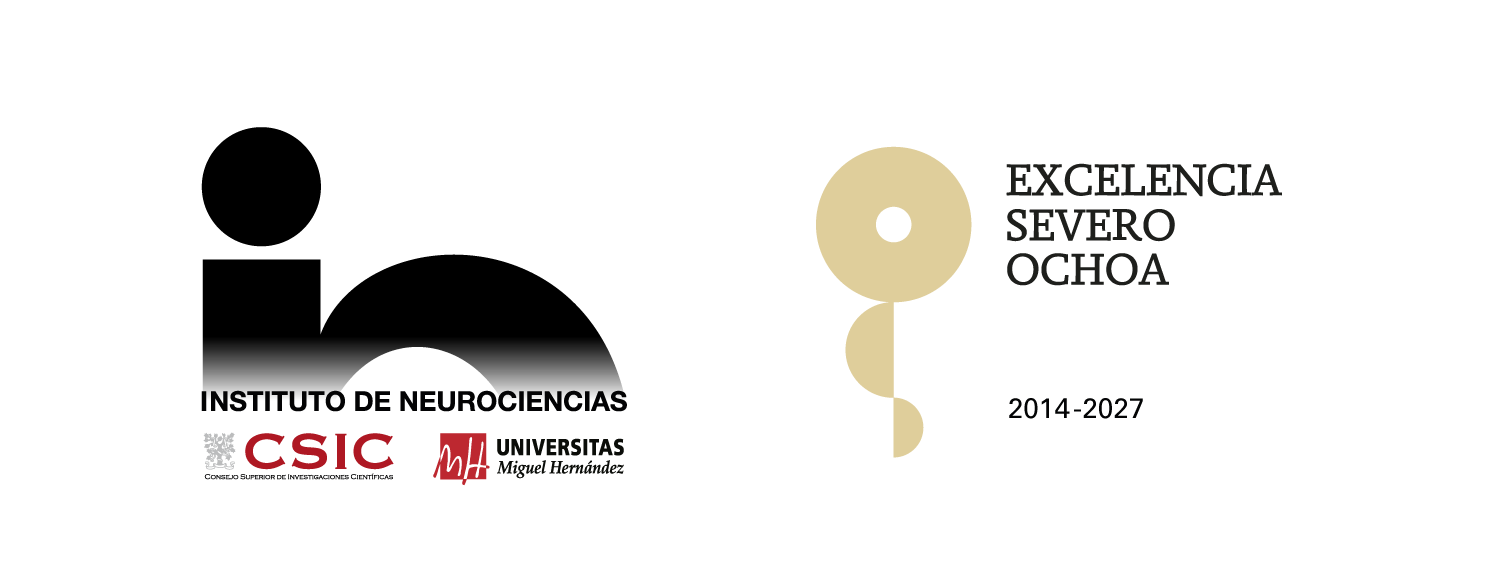International experts address the challenges in developing innovative therapies for chronic pain at the IN CSIC-UMH
17 de October de 2025
On the occasion of the Global Day Against Pain, celebrated today, October 17, the Institute for Neurosciences, a joint center of the Spanish National Research Council (CSIC) and the Miguel Hernández University (UMH) of Elche, held a roundtable titled ‘The Steep Path from Basic Science to Novel Pain Therapies’, dedicated to analyzing the main scientific, clinical, and regulatory challenges in the search for new treatments for chronic pain.

Photo: Speakers and organizers of the round table, IN CSIC-UMH
The event brought together three distinguished international experts: Professor Michaela Kress (University of Innsbruck, Austria), Professor Antonio Ferrer-Montiel (UMH, Spain), and Dr. Edward Emery (Grünenthal, Germany). The speakers offered complementary perspectives from the academic, industrial, and pharmaceutical fields on the obstacles that continue to hinder the development of effective therapies for millions of patients suffering from pain worldwide.
During the opening session, researcher Félix Viana, director of the Neurobiology of Pain and Inflammation Scientific Program at the Institute for Neurosciences, highlighted the importance of building bridges between basic research and clinical application: “Our understanding of pain mechanisms is advancing rapidly, but there are still obstacles that make it difficult to turn this knowledge into effective and safe treatments”, he noted.
In her presentation, Professor Kress explained how certain molecules of the immune system can modulate the activity of ion channels present in sensory neurons, which are involved in pain processes, thereby opening new avenues for the treatment of neuropathic pain. Professor Ferrer-Montiel, who heads the Institute for Research, Development and Innovation in Health Biotechnology of Elche (IDiBE), analyzed in his talk the challenges faced by the pharmaceutical industry in translating laboratory discoveries into clinical practice, highlighting the need for more predictive preclinical models and stronger interaction between basic and applied research. Finally, Dr. Emery (Grünenthal) presented various therapeutic alternatives based on topical and local formulations that could improve the efficacy and safety of analgesics compared to the limitations of traditional oral treatments.
The roundtable concluded with a lively discussion between the participants and the audience, composed largely of early-career researchers, both predoctoral, postdoctoral researchers, and master students. Attendees were able to ask questions in person and anonymously through the SLIDO app, generating a dynamic and enriching exchange.
The researchers Elvira de la Peña, Jorge Fernández, and Félix Viana, from the Sensory Transduction and Nociception Laboratory of the Institute for Neurosciences and organizers of the event, highlighted the importance of fostering such meetings: “Pain research is essential to improving the quality of life of millions of people. This roundtable has been a unique opportunity for young scientists to engage directly with international leaders and better understand the steps needed to turn a scientific idea into a real therapy,” they stated.
The organization of this event was made possible thanks to the support of the Vice-Rectorate for Research of UMH and the pharmaceutical company Grünenthal.This round table is part of the activities for the World Day Against Pain, promoted by the International Association for the Study of Pain (IASP), the European Pain Federation (EFIC), and the World Health Organization (WHO), which aims to raise awareness about the importance of improving the quality of life of people living with pain and to promote research and the development of new therapies.
Source: Institute for Neurosciences CSIC-UMH (in.comunicacion@umh.es)

 Español
Español